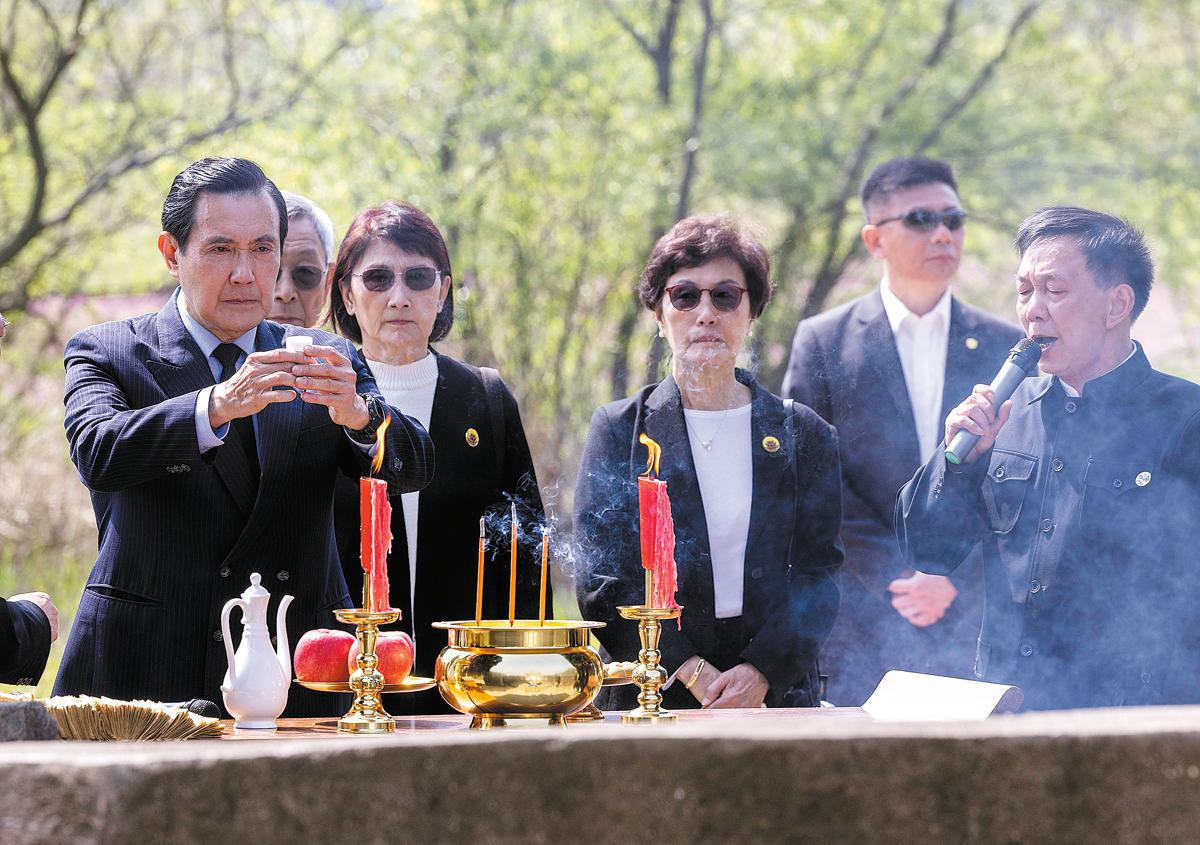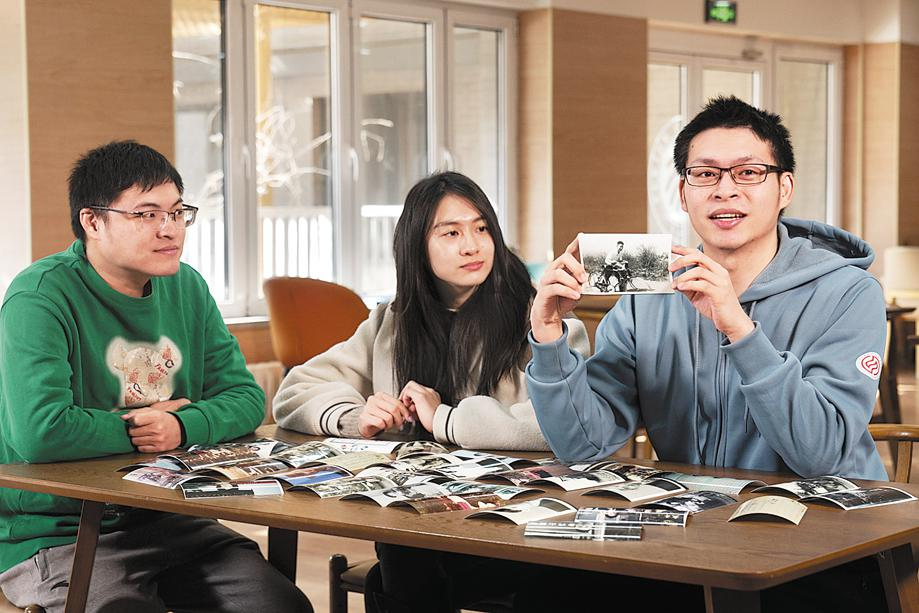Ancestry, heritage the same on both sides of the Straits
Apr. 11, 2023
Ma Ying-jeou, former chairman of the Chinese Kuomintang party, and his family visit the tomb of his grandfather in Xiangtan county, Hunan province, on Saturday, April 1, 2023, to honor the family's ancestors. CAI YANG / XINHUA
The journey of Ma Ying-jeou, former chairman of the Chinese Kuomintang party, to pay tribute to his ancestors has garnered wide attention around the world, mostly because he is the first former leader of the Taiwan region to set foot on the mainland since the founding of the People's Republic of China in 1949.
But if we ignore his status, such practice is quite common all over China.
Around Qingming Festival, or Tomb-Sweeping Day, people across the country visit the graves of their ancestors, lighting incense and paying their respects. Even for those who cannot make the trip, they try every possible means to pay homage to their forbears.
Such scenes are frequent in the city I live on the night of the festival, which fell on April 5 this year. At most crossroads, people burned "ghost money" in memory of their loved ones on the sidewalk. Usually a small fire truck can be found nearby in case of emergency.
They draw a circle facing the direction of the grave and burn the paper money inside the circles.
In the process people murmur to the spirits, asking them to take the money, enjoy a good afterlife and bless those still living with good fortune. This brought back memories of childhood, with my mother teaching me how to pay respects to our ancestors, how to keep the smoke out of my eyes, and how to speak with them and ask for their blessing.
After the ceremony, dozens of white circles with black ashes inside are left at nearly every sidewalk.
Few people really believe in ghosts, but the practice provides solace and a chance to share their feelings with the dead, once a year, even with their graves hundreds of miles away.
As Ma said, paying respects to ancestors is an important part of the Chinese people's ethical education. Tracing their roots and paying tribute to their ancestors are also a common aspiration for many people from Taiwan.
Among the 23 million in Taiwan, more than 97 percent have roots in the mainland. Over the past four decades, hordes of people from Taiwan have visited to get in touch with their predecessors.
Three siblings from Taiwan, Lin Yen-chen (left), Lin Pei-ying (middle) and Lin Kuan-ting, show a photo of their late grandfather Lin Wen-fang at Peking University in Beijing during a video interview with China Daily in Feb 2023. [Photo/China Daily]
One recent example is the three siblings from Taipei, who now all study at Peking University. With a copy of their family tree, they managed to reunite with their relatives in Putian, Fujian province, fulfilling their late grandfather's wish.
"We are all one family. We share a natural emotional connection," said Lin Pei-ying, the youngest sister.
Yearning for home and a sense of belonging is also evident in Ma's words: "My wish of many years has finally come true."
Unfortunately, as many people on both sides of the Straits are trying to get in touch with their roots, Tsai Ing-wen, the current regional leader, does the opposite.
On the day of Qingming Festival she held talks with US House Speaker Kevin McCarthy, the third-highest ranking official in the US, in Los Angeles. This was an act of collusion with the US to create the false impression there is one China and one Taiwan.
By doing so Tsai is betraying the interests of the 23 million Taiwan residents and the entire Chinese nation, on the very day that is meant for honoring one's ancestors.
We are one family. That should never be forgotten.
Source:
China Daily
Written by:
Wang Jianfen

